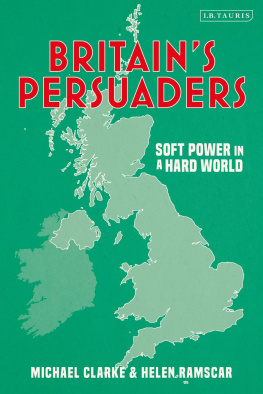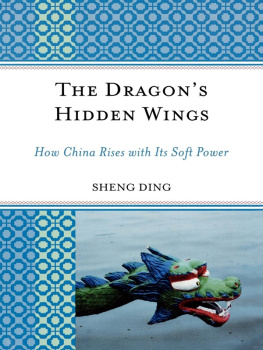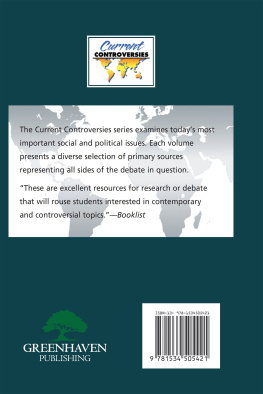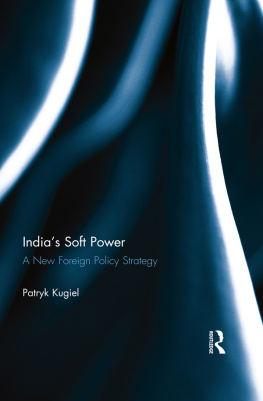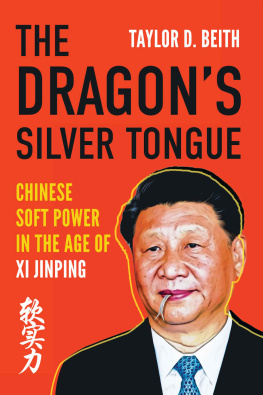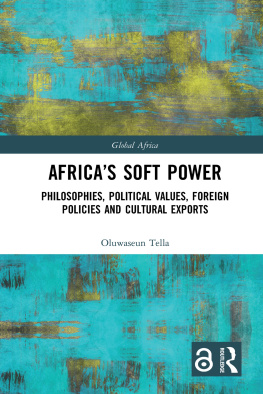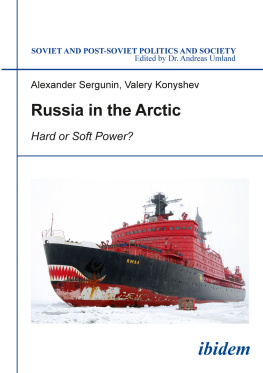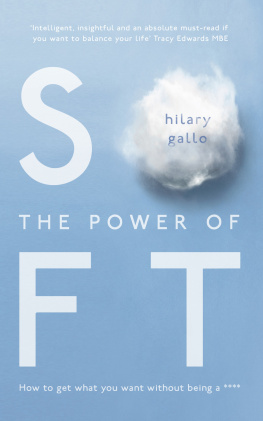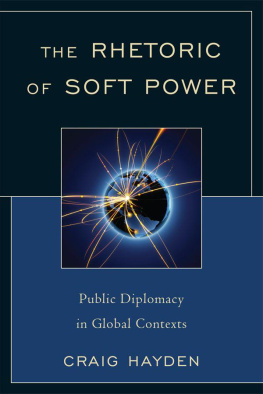Britains Persuaders
Britains Persuaders
Soft Power in a Hard World
Michael Clarke and Helen Ramscar
Authors
Professor Michael Clarke and Helen Ramscar are the co-authors of Tipping Point: Britain, Brexit and Security in the 2020s , I.B. Tauris/Bloomsbury, 2019.
Professor Michael Clarke was Director General of the Royal United Services Institute (RUSI) from 2007 to 2015, where he remains a Distinguished Fellow of RUSI. He is also Fellow of Kings College London and Visiting Professor of Defence Studies. He is Visiting Professor at the University of Exeter and Associate Director of its Strategy and Security Institute, and a Fellow of the University of Aberystwyth. He is currently a specialist adviser to the Joint Committee on National Security Strategy in Parliament and in 2020 was made a Fellow of the Royal College of Defence Studies.
Helen Ramscar is an Associate Fellow of RUSI, where previously she was Director of Development. She has worked in China and Kenya, as well as in the House of Commons, the Royal Household and the US Embassy in London. She is a graduate of Durham University, the Centre for International Studies and Diplomacy at SOAS and Cass Business School. Currently she lives in Switzerland and is a board member of the Basel Chapter of the British-Swiss Chamber of Commerce.
Contents
In our previous co-authored book, Tipping Point: Britain, Brexit and Security in the 2020s , our attention was focused on the major security challenges of the last decade and how constrained Britain is likely to be during the course of the next one. Britains prospects are troubling in this respect and its easy to feel downcast even though all European powers face a similar outlook.
Our analysis in Britains Persuaders , however, is on a different plane. This book has greatly renewed our faith in Britain and British society. Soft power is generally neutral in terms of party politics and to a large extent detached from the political imbroglios Britain endured in the 2010s. We have found our research into British soft power assets inspires enormous hope. Britain does indeed have many admired strengths, coveted institutions, attractive and enduring qualities, and if protected and played effectively these can be high-value cards for a reinvigorated global Britain to play. By identifying the leading soft power assets, in light of its strategic goals, believing in ourselves as a society and investing in the soft power environment, there is a great deal of low-hanging fruit for global Britain and much to be protected for the long game.
As authors we have enjoyed selecting examples throughout the following chapters to illustrate their points. Readers will doubtless have examples of their own, and we hope we have offered here a way they might think about the contributions their examples do, or dont, make to British soft power. We hope, too, that they will see them in the context of how we think about power as a construct, which we outline in the early chapters.
British history and contemporary Britain is brimming with potential soft power assets. The more we understand just what we have, and the further this understanding is shared across society, the greater the likelihood that Britain as a whole will really believe in its soft power capacity. When seeing them for what they are and what more they could be, Britains soft power assets have instilled in us a great deal of optimism.
Michael Clarke and Helen Ramscar
AI | Artificial Intelligence |
AMRC | Association of Medical Research Charities |
APPG | All Party Parliamentary Group |
ARIA | Advanced Research and Invention Agency |
ASOS | As Seen On Screen |
BAME | Black, Asian and Minority Ethnic |
BBC | British Broadcasting Corporation |
BEIS | Department for Business, Energy & Industrial Strategy |
Britain | Term that we use synonymously with UK |
BSI | British Standards Institute |
CAF | Charities Aid Foundation |
CBI | Confederation of British Industry |
CD | Compact Disc |
CEN | European Committee for Standardization |
CEPI | Coalition for Epidemic Preparedness Innovations |
CERN | European Organization for Nuclear Research |
CHOGM | Commonwealth Heads of Government Meeting |
CND | Campaign for Nuclear Disarmament |
Commonwealth | Commonwealth of Nations |
DARPA | Defence Advanced Research Project Agency (US) |
DCMS | Department for Digital, Culture, Media & Sport |
DESA | Department of Economic and Social Affairs (UN) |
DNA | Deoxyribonucleic acid |
DTI | Department of Trade and Industry |
EEC | European Economic Community |
EMA | European Medicines Agency |
ESMA | European Securities and Markets Authority |
EU | European Union |
F1 | Formula 1 |
FCA | Financial Conduct Authority |
FCDO | Foreign, Commonwealth & Development Office |
FCO/Foreign Office | Foreign & Commonwealth Office, October 1968 to September 2000 |
G20 | Group of Twenty |
GDP | Gross Domestic Product |
GVA | Gross Value Added |
HMG | Her Majestys Government |
HMRC | Her Majestys Revenue and Customs |
ICANN | Internet Corporation for Assigned Names and Numbers |
IMO | International Maritime Organization |
Integrated Review | Integrated Review of Security, Defence, Development and Foreign Policy |
ISO | International Organization for Standardization |
LBC | London Broadcasting Company |
LIBOR | London Inter-Bank Offered Rate |
LSE | London School of Economics |
MHRA | Medicines and Healthcare Products Regulatory Agency |
MinTech | Ministry of Technology, October 1964 to October 1970 |
MoD | Ministry of Defence |
MoJ | Ministry of Justice |
MOOCS | Massive Open Online Courses |

